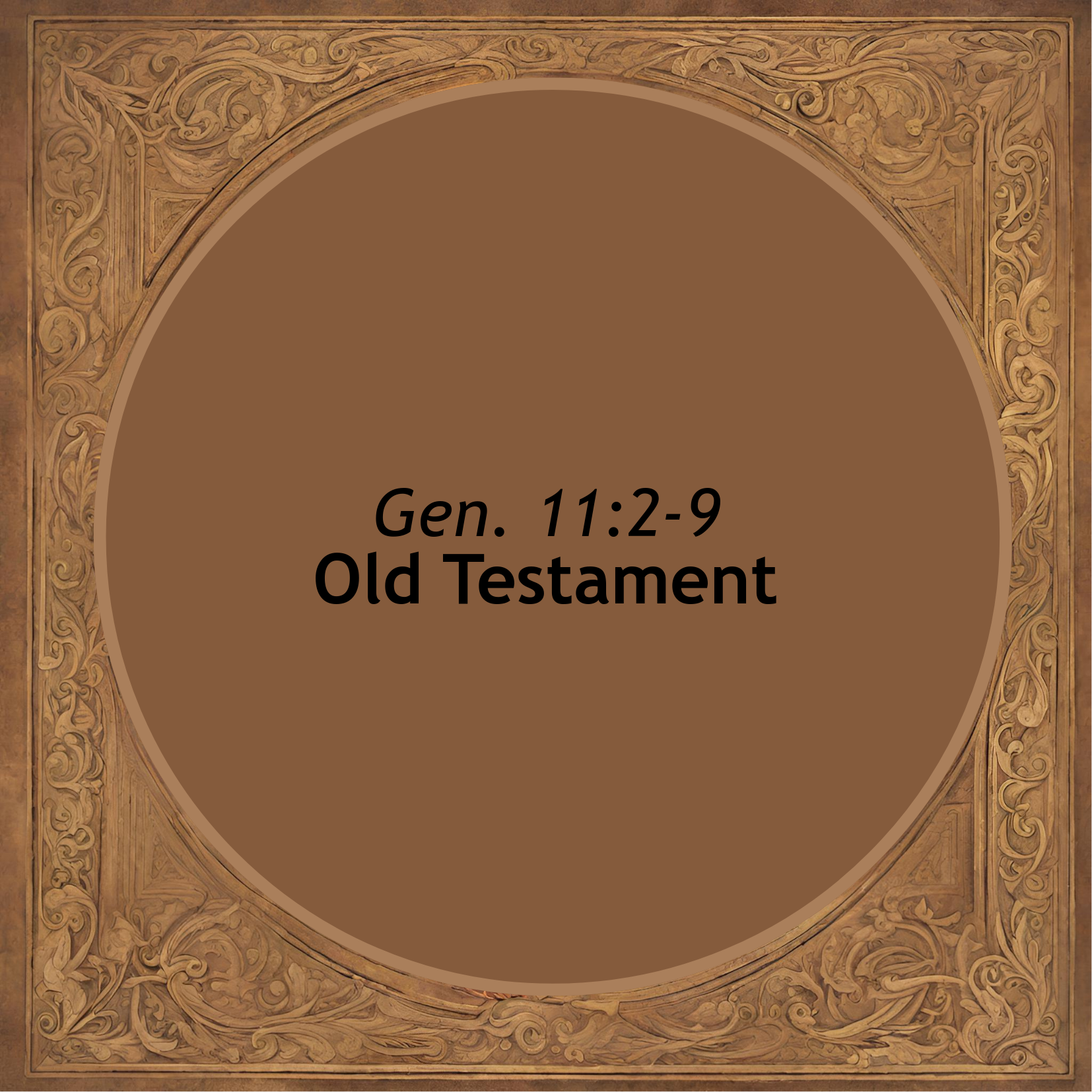The Tower of Babel and Dispersion
Are languages a curses or a blessing?

And the whole earth was of one language, and of one speech.
And it came to pass, as they journeyed from the east, that they found a plain in the land of Shinar; and they dwelt there.
And they said one to another, Go to, let us make brick, and burn them throughly. And they had brick for stone, and slime had they for mortar.
And they said, Go to, let us build us a city and a tower, whose top may reach unto heaven; and let us make us a name, lest we be scattered abroad upon the face of the whole earth.
And the Lord came down to see the city and the tower, which the children of men builded.
And the Lord said, Behold, the people is one, and they have all one language; and this they begin to do: and now nothing will be restrained from them, which they have imagined to do.
Go to, let us go down, and there confound their language, that they may not understand one another’s speech.
So the Lord scattered them abroad from thence upon the face of all the earth: and they left off to build the city.
Therefore is the name of it called Babel; because the Lord did there confound the language of all the earth: and from thence did the Lord scatter them abroad upon the face of all the earth.
These are the generations of Shem: Shem was an hundred years old, and begat Arphaxad two years after the flood:
The Old Testament, The First Book of Moses called Genesis 11:2-9
Materialist
Genesis 11:1 of the King James Version starts the narrative with “The whole earth was of one language, and of one speech.” which we could read as “The entire land [erets] had one way of thinking [Saphah]”1 Which would incorporate spoken language and reasoning or simply reasoning. These verses frame a local problem where the community leaders wanted to maintain a hegemony2 instead of a heterarchy3.
The purpose of this passage, therefore, is not primarily the explanation of the origin of diverse languages, but the condemnation and defeat of the imperial arrogance and universal domination represented by the symbol of Babylon. God’s action, then, is twofold: the thwarting of the project of the false unity of domination and the liberation of the nations that possess their own places, languages, and families. Jose Miguez-Bonino, 19994
The Babel’s leaders see themselves as self-sufficient in their church-city where a form of totalitarianism demonstrates its ‘pseudo-messianic ideology,’ in which they promise their inhabitants end-times fulfillment - the promise that all desires are fulfilled by giving themselves to Babel’s tower of thinking. Otherwise called politics. Their sin was in building a community where God had no voice and few had control. To handle this totalitarianism, God’s actions were not punishments but prompts to continue His children’s evolution and progress.
Idealist
This classic story frames the heavens as God’s Ideal realm and the earth as Man’s fallen material realm. We see ‘the whole earth’ use ‘burnt brick’ and ‘slime’ to build a tower whose ‘top may reach unto heaven’ where they attempt entrance without God’s invitation. Their sin of trying to enter heaven on their own brought down the punishment of diverse languages. Starting with Martin Luther5, the Tower of Babel story has the same framing he accepts from Augustine around Adam and Eve and the Fall—the story of people who try to be like God and Fall because of their bad choices. The same Fall narrative of punishment by moving mankind out of an ‘ideal’ state appears in Babel’s story. Humanity was more like God and had one unified or ‘ideal’ language, which they lost due to poor choices.
Footnotes
Language Diversity - Curse or Blessing? | SIL International↩︎
Hegemony is the political, economic, and military predominance of one state over other states, either regional or global.↩︎
Heterarchy: In a group of related items, heterarchy is a state wherein any pair of items is likely to be related in two or more differing ways. Whereas hierarchies sort groups into progressively smaller categories and subcategories, heterarchies divide and unite groups variously, according to multiple concerns that emerge or recede from view according to perspective.↩︎
Language Diversity - Curse or Blessing? | SIL International↩︎
Babel, Tyranny and Totality: Reading Genesis 11 with Luther↩︎